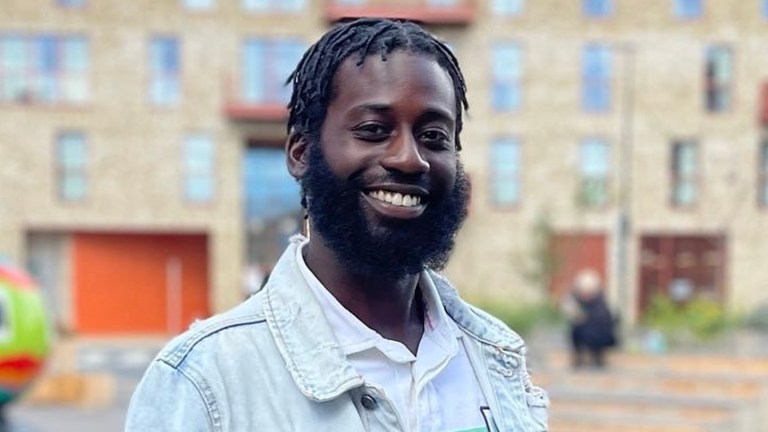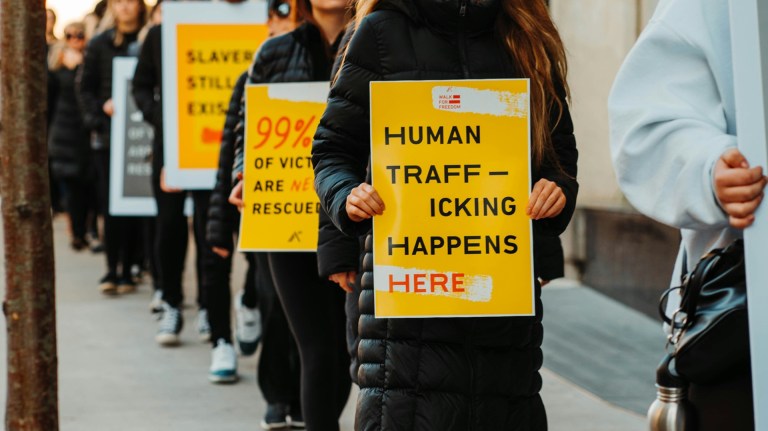In Wales, homes cost 5.8 times annual earnings as of last year while in Scotland that rate is 5.6 times.
Private rents have never been higher. ONS figures show average rents increased by 9.1% in the 12 months up to November 2024. In London that rise was even higher at 11.6%.
Incredibly enough, the rate at which rents have been rising has shown signs of slowing in recent months.
But they are still increasing by four times as much as the inflation rate and outstripping wage rises. The amount tenants are paying each month is still £110 higher than last year.
The renting crisis is having a knock-on effect on homelessness across the UK. Statisticians in the latest annual homelessness figures in England recently pointed the finger at the private rental sector for rising numbers, alongside efforts to clear the asylum backlog.
A total of 57,340 households needed council support after being threatened with homelessness following the end of a private rented tenancy in England. That was up 4.6% annually and more than a third of the 146,430 households owed a prevention duty overall. More than half of these households included children.
Advertising helps fund Big Issue’s mission to end poverty
The rise in the number of families living in temporary accommodation has been pushing council budgets to the brink across the UK.
Government figures show a record-high 123,100 households in England were living in temporary accommodation by the end of June 2024 – 5% higher than the previous quarter and a staggering 16.3% up on numbers recorded a year earlier. That meant 159,380 children were growing up in B&Bs, hotels and other makeshift homes, including 151,630 children.
It’s a similar story in Scotland and Wales where records are also being smashed.
A total of 16,330 households are in temporary accommodation in Scotland, where the government has been forced to declare a housing emergency. That’s 9% higher than the 15,039 recorded in 2023 and the highest point on record.
In Wales, 6,447 households are in temporary accommodation, surging by a mammoth 18% in 2023-24 and, you guessed it, reaching another record high.
It’s a grim legacy for Labour to inherit from the Tories – and the successive governments before them – but Starmer, Angela Rayner and co have, so far, talked a good game on housing if you don’t stare too closely at the small print.
Advertising helps fund Big Issue’s mission to end poverty
The party has promised to build 1.5 million homes while in power: the same target the Tories missed by 28% on average over the last decade. The last time the annual 300,000 mark was hit in England was back in 1969-70 under Harold Wilson.
It won’t be hit this year either. In fact, Labour will be lucky to reach half that amount with the cost of materials, labour shortages and the impact of the mini-budget putting housebuilders off delivering at pace.
That means Labour could face the prospect of delivering 450,000 new homes in the final year of parliament to hit their 1.5 million mark. It’s a daunting and unlikely prospect.
Time will tell if Labour can deliver on a promise to build new towns, streamline planning laws and bring through the rent reforms which have languished for almost six years.
There has been a vague promise of delivering more social rent homes but can the reintroduction of mandatory housebuilding targets and a reliance on private companies deliver the 90,000 social rent homes experts call for every year?
And can promised tweaks to the Right to Buy scheme, which has seen more than two million social homes sold off in more than 40 years, protect them?
Advertising helps fund Big Issue’s mission to end poverty
It’s likely it will take more than five years to turn around a housing crisis that is so deeply embedded in society, hurting health and prospects and costing the NHS, DWP and the wider economy billions.
If Labour is to deliver on its pre-election promise of bringing change, it will take a transformation of how housing is viewed in the UK.
This includes a rethink of how social housing functions, banishing the stigma and breaking the attitude that social housing is for the poor to make it more embedded in society, as seen in places like Vienna.
The Austrian capital is often held up as a blueprint, where renters pay a third of what tenants pay in other big cities and social tenants make up more than half the population. Without a rethink on social housing, it will be ‘Goodnight Vienna’ for Starmer.
If he is to keep his home at Number 10, the housing crisis better not stick around in the decades to come.
Liam Geraghty is Big Issue’s deputy digital editor (news) and housing specialist.
Advertising helps fund Big Issue’s mission to end poverty
Do you have a story to tell or opinions to share about this? Get in touch and tell us more. Big Issue exists to give homeless and marginalised people the opportunity to earn an income. To support our work buy a copy of the magazine or get the app from the App Store or Google Play.











